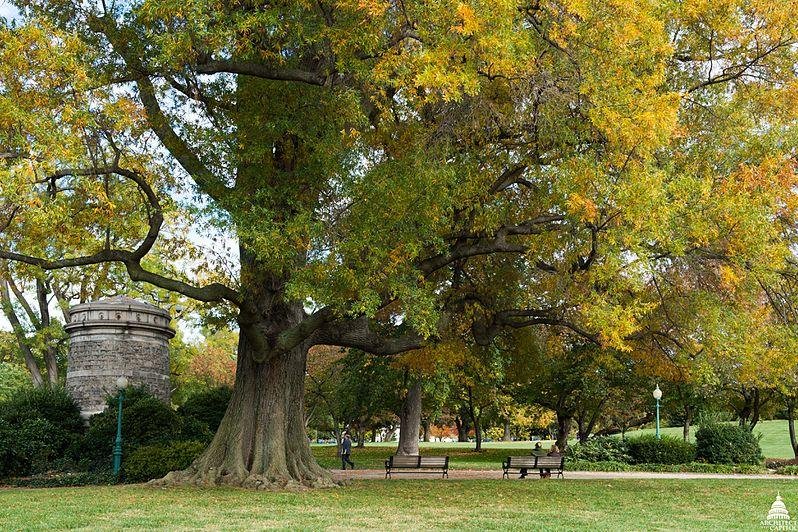Researchers in North Carolina found urban warming curbs both tree growth and photosynthesis. Pictured, a willow oak tree grows on the grounds of the U.S. Capitol building in Washington, D.C. Photo by USCapitol
RALEIGH, N.C., Oct. 5 (UPI) -- There's evidence that global warming is having a "greening" effect on large portions of the planet. And some scientists have suggested an uptick in carbon will encourage photosynthesis -- for better or worse. But that's not case in cities, new research shows.
When scientists at North Carolina State University tracked tree growth throughout the city of Raleigh, they found urban warming curbs both tree growth and photosynthesis. They also found pests, including scale insects and spider mites, were more abundant among trees at warmer sites.
Over the course of two years, researchers measured tree trunk and branch growth, as well as photosynthesis rates, of 40 willow oak trees, Quercus phellos.
Scientists found a strong correlation between pest populations and temperatures. The warmer it got, the more insects invaded. But their measurements prove rising temperatures curtailed the growth of city trees with or without pests.
"Trees that didn't have pests had more branch growth than trees with pests," lead researcher Emily Meineke, an entomologist at N.C. State, said in a news release. "But trees at warmer sites had less trunk growth, which accounts for more tree biomass, regardless of pests."
Meineke and her colleagues published the results of the two study in the journal Proceedings of the Royal Society B.
Researchers warn that a reduction in biomass, as hotter cities yield slower-growing trees, will limit the ability of trees to take up carbon.
"We found that urban warming reduced carbon storage by all of Raleigh's willow oaks by 12 percent, or 27 metric tons per year," Meineke said. "We think the findings are generalizable to other tree species and other cities, especially hotter cities like Atlanta, but additional work needs to be done to determine whether that's the case."















